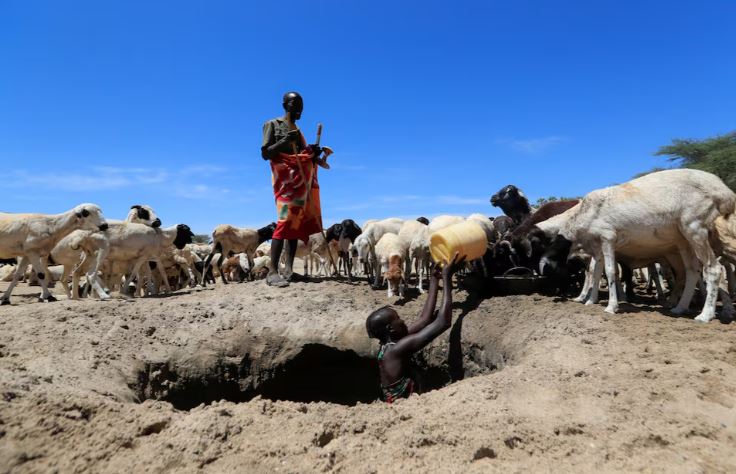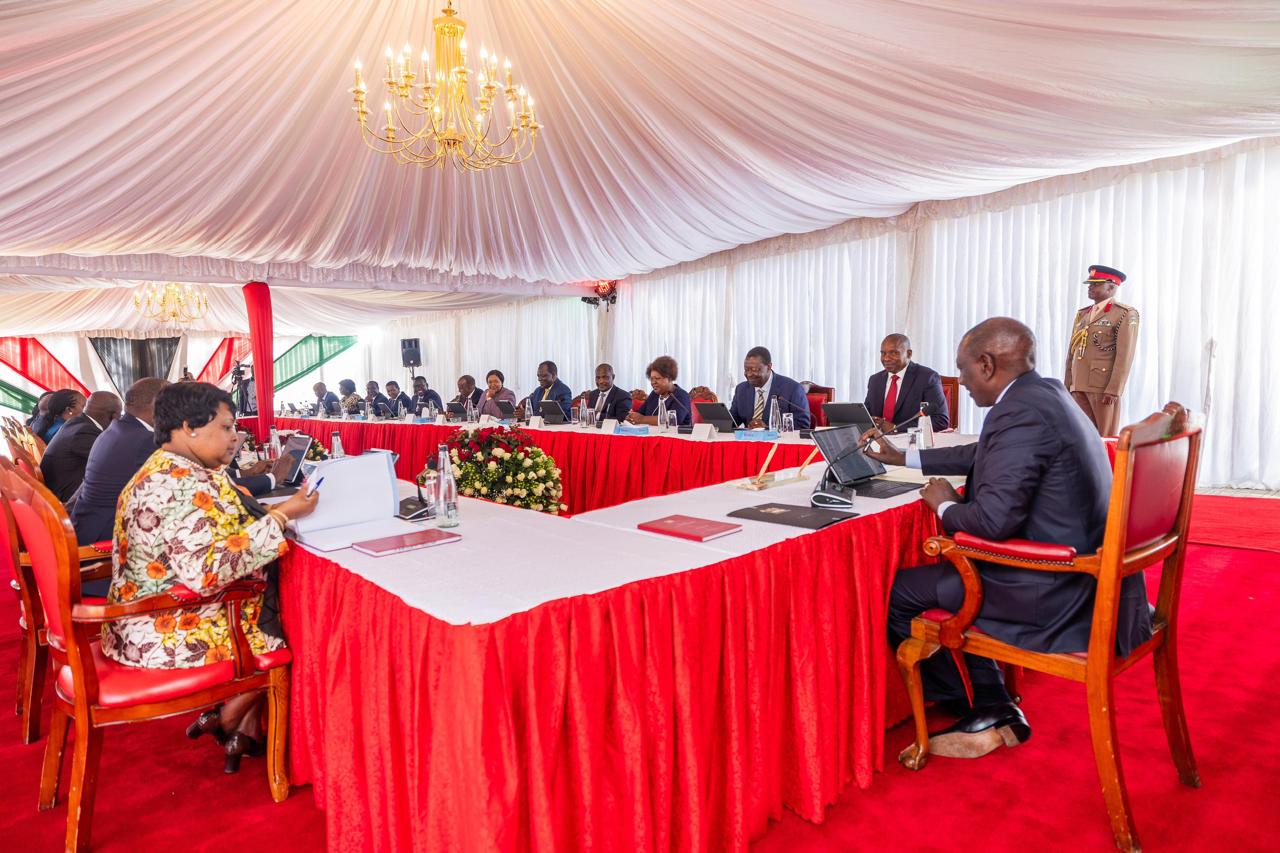Pastoralists to move freely across borders as Cabinet approves IGAD protocol

The decision marks a significant step towards enhancing the freedom of pastoralists to move across the region in search of grazing lands and water for their livestock.
President William Ruto led Cabinet, on Tuesday approved the IGAD Protocol on Transhumance, designed to ensure the safe and structured movement of livestock and herders across borders.
The decision marks a significant step towards enhancing the freedom of pastoralists to move across the region in search of grazing lands and water for their livestock.
More To Read
- Djibouti confirms Eritrea’s formal exit from IGAD regional bloc
- IGAD regrets Eritrea’s ‘premature’ withdrawal from regional bloc
- Eritrea withdraws from IGAD for second time, citing ‘failure to meet aspirations of the region’
- Kenya urges stronger regional cooperation as transport corridors fuel disease risks across East Africa
- Kenyan journalists celebrate climate reporting wins at IGAD Media Awards 2025
- IGAD ministers renew regional pact on refugees as Kenya demands fair burden‑sharing
The protocol regulates transhumance activities, including the movement of herders and livestock, sustainable management of resources, and conflict prevention.
It also allows citizens involved in business or economic activities in another member state to bring along their families and join social security schemes in accordance with local laws.
Now that it has been ratified by the Cabinet, the protocol grants Kenyans the freedom to move within the IGAD member states—Djibouti, Eritrea, Ethiopia, Somalia, South Sudan, Sudan, and Uganda—under agreed-upon conditions.
 President William Ruto chairs Cabinet meeting at Kakamega State Lodge on January 21, 2025. (PCS)
President William Ruto chairs Cabinet meeting at Kakamega State Lodge on January 21, 2025. (PCS)
IGAD emphasised the protocol’s critical role in providing a framework for safe and orderly cross-border mobility of pastoralists while promoting regional cooperation in managing shared resources.
Prime Cabinet Secretary Musalia Mudavadi last year on June signed the protocol on behalf of Kenya, with IGAD’s Head of Mission in Kenya, Fatma Adan, and other key figures such as Livestock Principal Secretary Jonathan Mueke and Dereje Wakjira, Director of IGAD’s Centre for Pastoral Areas and Livestock Development, present at the ceremony.
Mudavadi highlighted the importance of the agreement in promoting peaceful coexistence between pastoralist communities and mitigating conflicts.
“This will help in promoting peaceful coexistence, reduce the risks associated with violence, lead to the protection of the rights and interests of pastoralist communities, including their access to land, water, and grazing resources, and further cooperation and coordination among neighbouring countries in addressing common challenges across borders,” he said.
Kenya now becomes the sixth member state to sign the agreement, joining Somalia, Ethiopia, and Uganda among others.
Top Stories Today













































